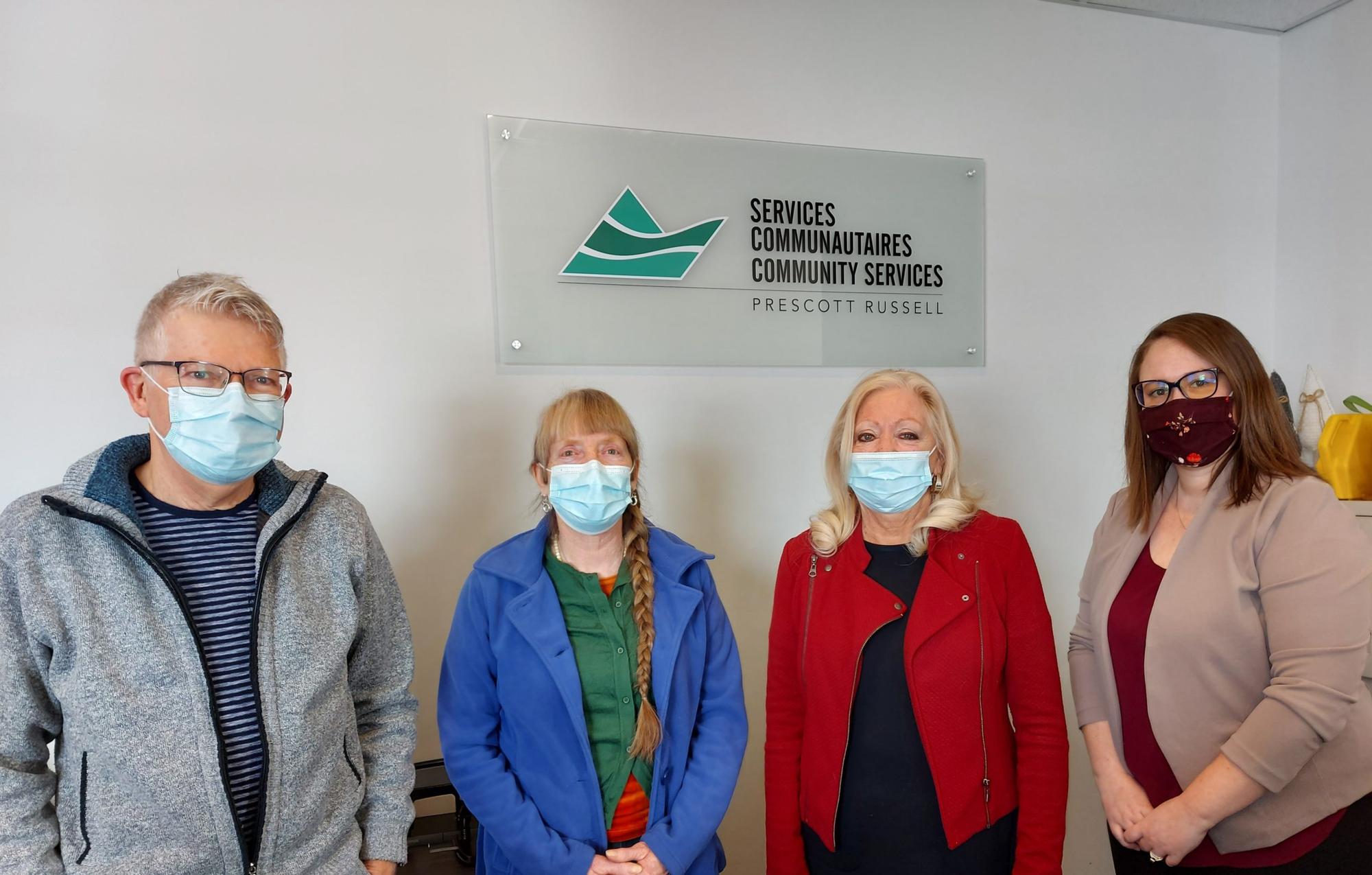Dealing with a loss and end of life is never easy, but for many, preparing for end of life and grieving is harder than ever before, due to isolation, fewer family visits, the scaling-down of funerals and the lack of normal community support.
Lisa and Mark Henderson, owners of Hillcrest Funeral Home in Vankleek Hill, have been supporting people through grief and loss during the past year, during changing restrictions and the ongoing pandemic.
Lisa Henderson says that at the outset of the pandemic, many families chose to wait before holding funeral services.
“I think that back then, families were hoping for things to open up more so that what we might call a “normal” funeral or goodbye could take place,” she said.
The tendency these days may be for families to move ahead and hold a funeral taking new restrictions into consideration. But that doesn’t meant that grieving is taking place as it should.
“I feel that for many, grieving is suspended. It is kind of what we are seeing in terms of how we are all living these days – so much of our lives are on hold, but the pandemic has also affected how we process grief,” Lisa says.
“People are appreciating the intimacy of funerals, but what we hear is the sense of loss from people being unable to hug each other or touch each other. That sense of physical loss is very hard for some,” she continued.
While joyful celebrations can be postponed or put on hold, we have less control over critical illness and death.
An advocate of having difficult conversations, Lisa points out that when a person who is ill or facing death wants to talk about what comes next, family members should listen.
“Often, people just say to their loved ones that they don’t want to talk about it, but if someone close to you has found the courage to raise the subject, you should try to listen. We avoid talking about death because we don’t want to cause pain to our loved ones and we don’t want to feel like we are the ones bringing it up. But these conversations really matter,” Lisa emphasized.
She points to the vital and much-needed Prescott-Russell Grief Support Program which was created just last year for those needing grief support, either before or after a loss.
Volunteers at the Prescott-Russell Grief Support Program are there to help anyone who needs support during this time. With conversations conducted completely by telephone, volunteers are there to listen to anyone who needs support related to palliative care situations or after a loss.
There is no wait-time, according to program coordinator Véronique Simard. There are bilingual male and female volunteers available for anyone in need across the two counties, she points out.
“All someone has to do is call me and we will get them registered and a volunteer will call them the same week,” Simard says.
The amount of support varies, she says, and can be a few calls per week but can change over time.
“We are here to support people in the long-term,” she points out.
The end-of-life experience can be more difficult during this time, according to Simard, because we may not be able to be present in the way we normally would be when a friend or family member needs us.
“This makes our service especially valuable. Our volunteers are trained and ready to listen and provide support. We also ensure that if someone needs additional services, that we find a way to connect them to the help that they need,” Simard commented.
The need is large. Funerals and how we can grieve with friends and family is changing frequently, often from one month to the next, as restrictions change.
To connect with the Prescott-Russell Grief Support program, call Veronique Simard, Coordinator at 613-632-0939, extension 131 or email: [email protected].
In Argenteuil, 4 Korners has a website with lists of many resources and has been offering a weekly series on Wellness Wednesday. You can find out more about its services here: https://www.4kornerscenter.org.
On April 28, a Zoom presentation by retired MSW Dominique Lalonde, focused on identifying, planning and communicating, your needs to others (family) in the event of illness or incapacity.


